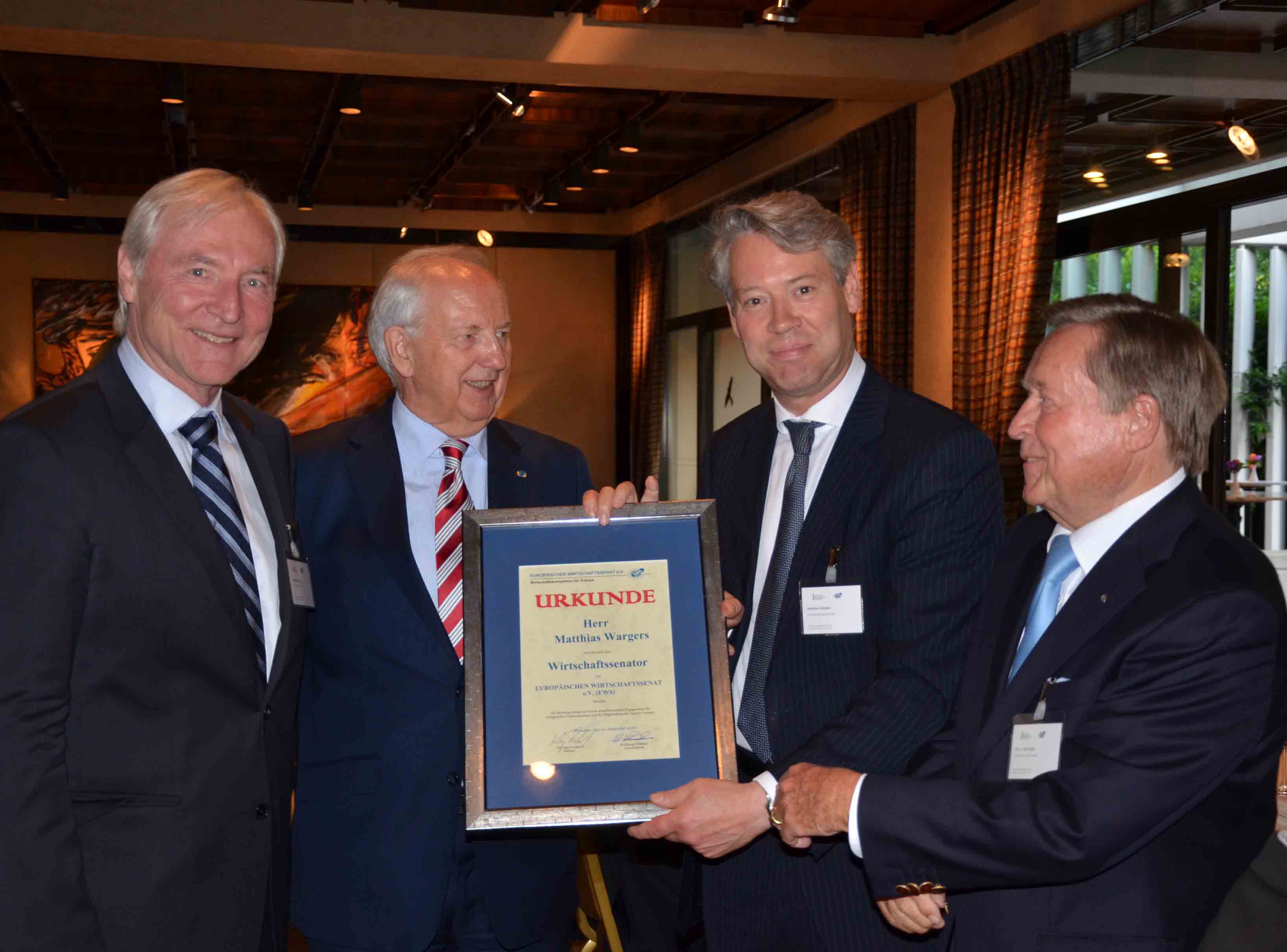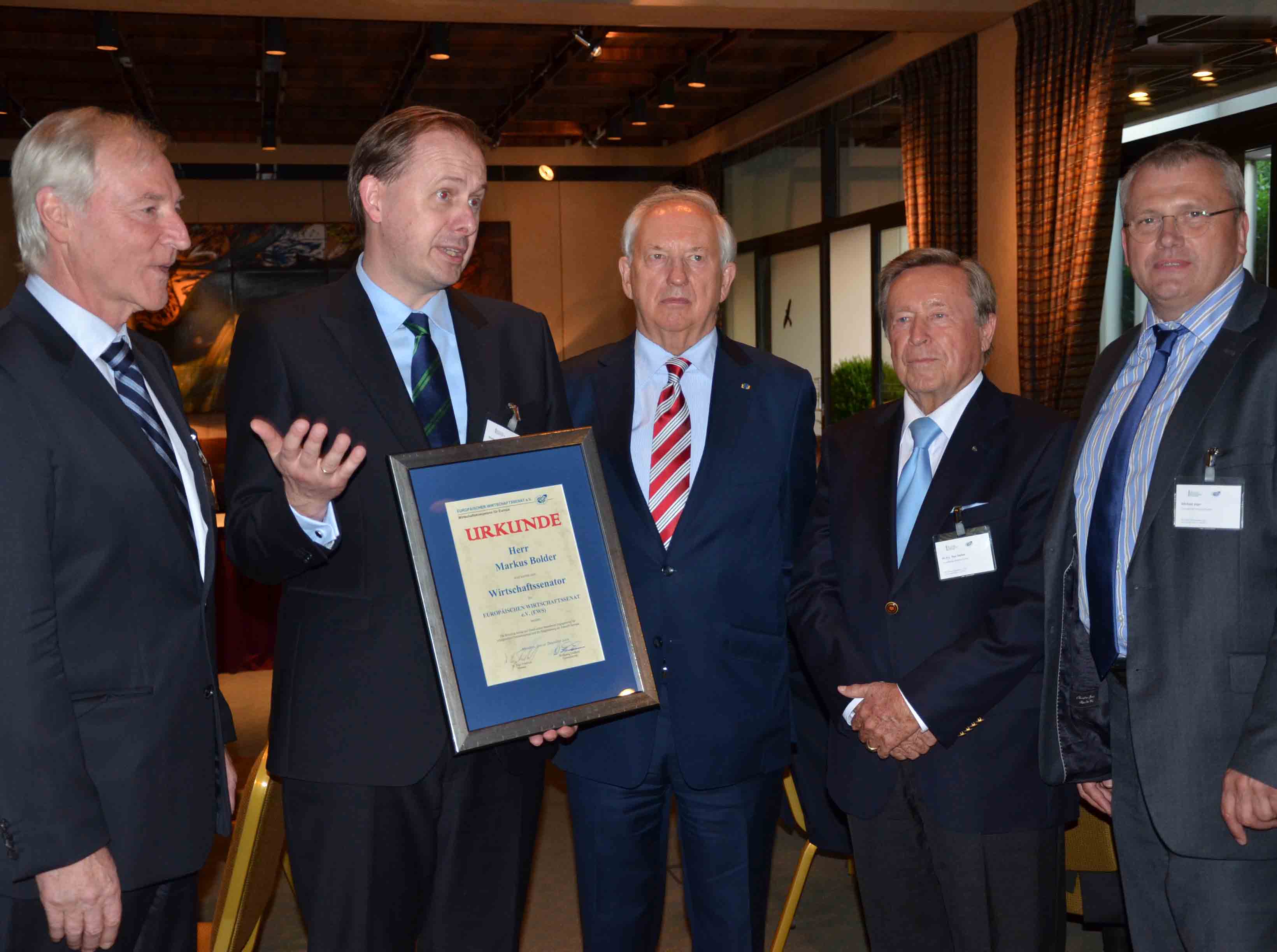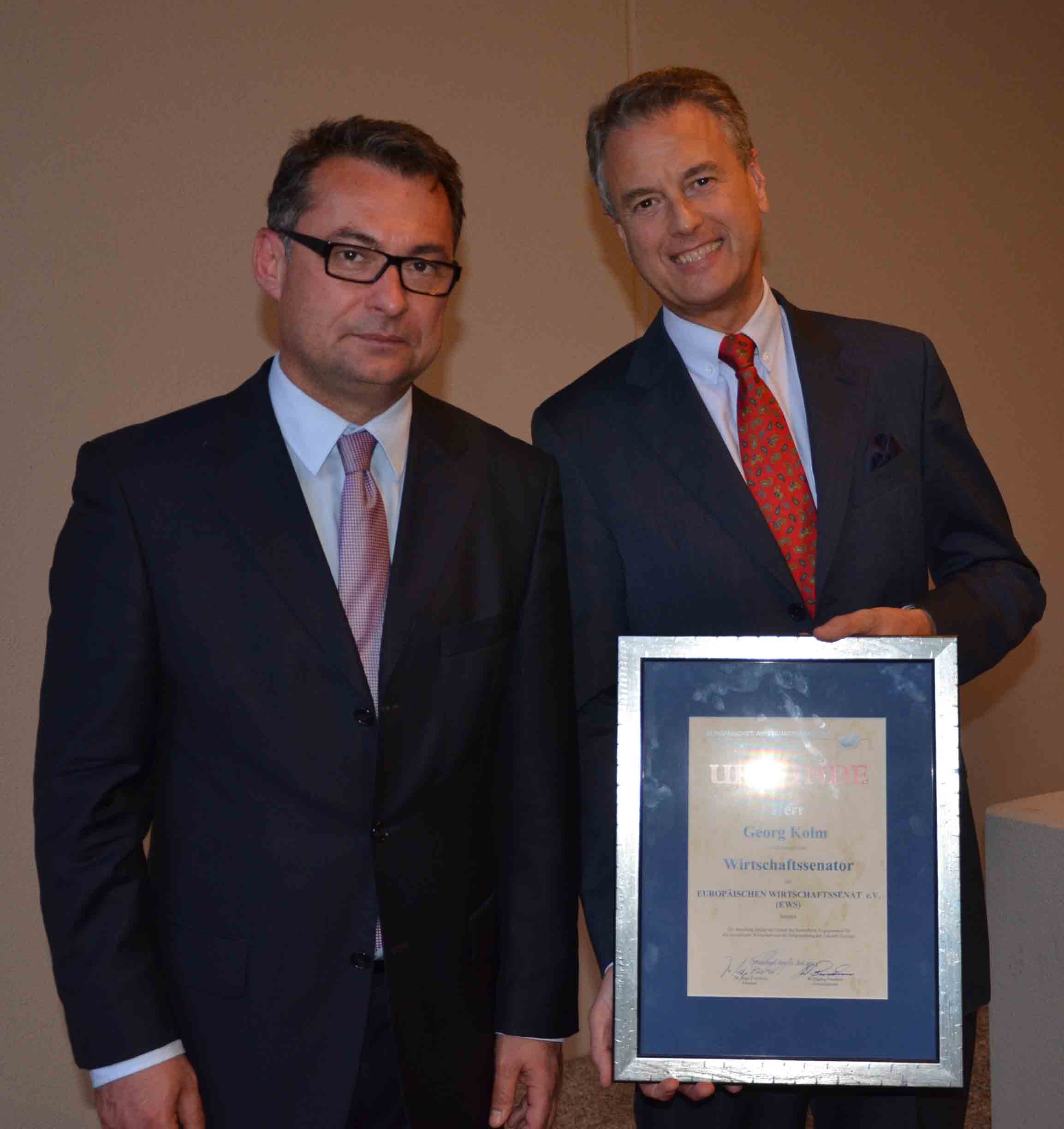EES Economic Talks in Frankfurt (GER), July 4, 2013
EES Economic Talks 2013
Host: Deutsche Bundesbank Frankfurt
“European Union = Bank Union or Transfer Union?“
Speech of Dr Joachim Nagel, Member of the Executive Board of the Deutsche Bundesbank, responsible for the area of Market and Information Technology

from left to right:: MEP Burkhard Balz, Matthias Wargers, MoB EAA, Dr. Ingo Friedirch, EES Peäsident, Dr. Joachim Nagel, MoB Deutsche Bundesbank, Dr. Helmut Linssen, Minister of State ret. and MEP Elmar Brock
Within the framework of the session organized by the European Economic Senate (EES) at the premises of Deutsche Bundesbank in Frankfurt on 4 July 2013, one of the topics on the agenda was: the possibility of a subtle transformation of the “European Union” into a “European Transfer Union”. The primary aim of this annual dialogue between EES Senators and the Executive Board of the Deutsche Bundesbank should be pointing out solutions that stop the “administration of the European crisis“ and bring us back to the “design of the future of Europe“. In his welcome speech, EES President, Dr Ingo Friedrich, presented the main topics and issues: given the ongoing debt crisis in some of the countries of the eurozone, there are more and more voices advocating for a “mutualisation of national debts“. A European banking union also seems to play a role in the current discussion. What kind of repercussions could this have for Germany? What does the future of the euro and the future of Europe look like? In a final debate, Dr Joachim Nagel, Member of the Executive Board of the Deutsche Bundesbank, as well highly distinguished panelists and participants of this event discussed about these topics which are so crucial for the European Union. Following a keynote address by Dr Joachim Nagel, further deepening statements were made by Matthias Wargers, Member of the Executive Board of Erste Abwicklungsanstalt (EAA), EES Senator, Dr Helmut Linssen, State Minister (retired), Finance Minister (retired), member of the Steering Committee and Federal Treasurer of CDU Deutschland, Financial Chairman of the RAG Foundation, EES Honorary Senator, Elmar Brok, member of the European Parliament, chairman of the Foreign Affairs Committee, Member of the Executive Board and foreign-policy spokesperson of the Europäische Volkspartei (EVP), EES Honorary Senator and EES President Dr Ingo Friedrich, Honorary President of the European Parliament.

The coordinator of this the panel discussion was Burkhard Balz, member of the European Parliament, member of the Committee on Economic and Monetary Affairs and member of the Special Committee on the Financial, Economic and Social Crisis of the European Parliament.
In line with the issues at hand and given the current settings of the course, two focal points were developed: in order to safeguard financial stability in the euro area and prevent crises in future, it will be necessary to loosen the ties between governments and banks as much as possible. The objective behind this is to ensure at the same time that the no-bailout principle regains its universal applicability again. Basel III with its new capital and liquidity rules will make sure that banks are better able to bear losses and that bank owners take on more liability. The plans for a European banking union are intended to lead into a similar direction. Despite all these measures it is nevertheless important that banks are allowed to fail without any need for governments, and thus taxpayers, having to shoulder their burden. Within the framework of a European restructuring and resolution mechanism care should be taken that the owners and creditors of a bank have a sufficient share as to such bank’s losses. The same system should be applied in the area of public finances. In this context, care should be taken that government budgets no longer are able to run so easily into serious financial problems. The no bail-out principle should also be reinforced for public finances. If the public finance problems of one country threaten the financial stability of the overall euro area, then limited assistance will be justifiable but this assistance has to be subject to strict conditions. To perform this task, the ESM is available. It should be our goal, however, that each country rapidly regains responsibility for its own public finances. Apart from the crisis measures discussed, it should be our goal to create a monetary union with the intention to maintain the euro as a stable currency.
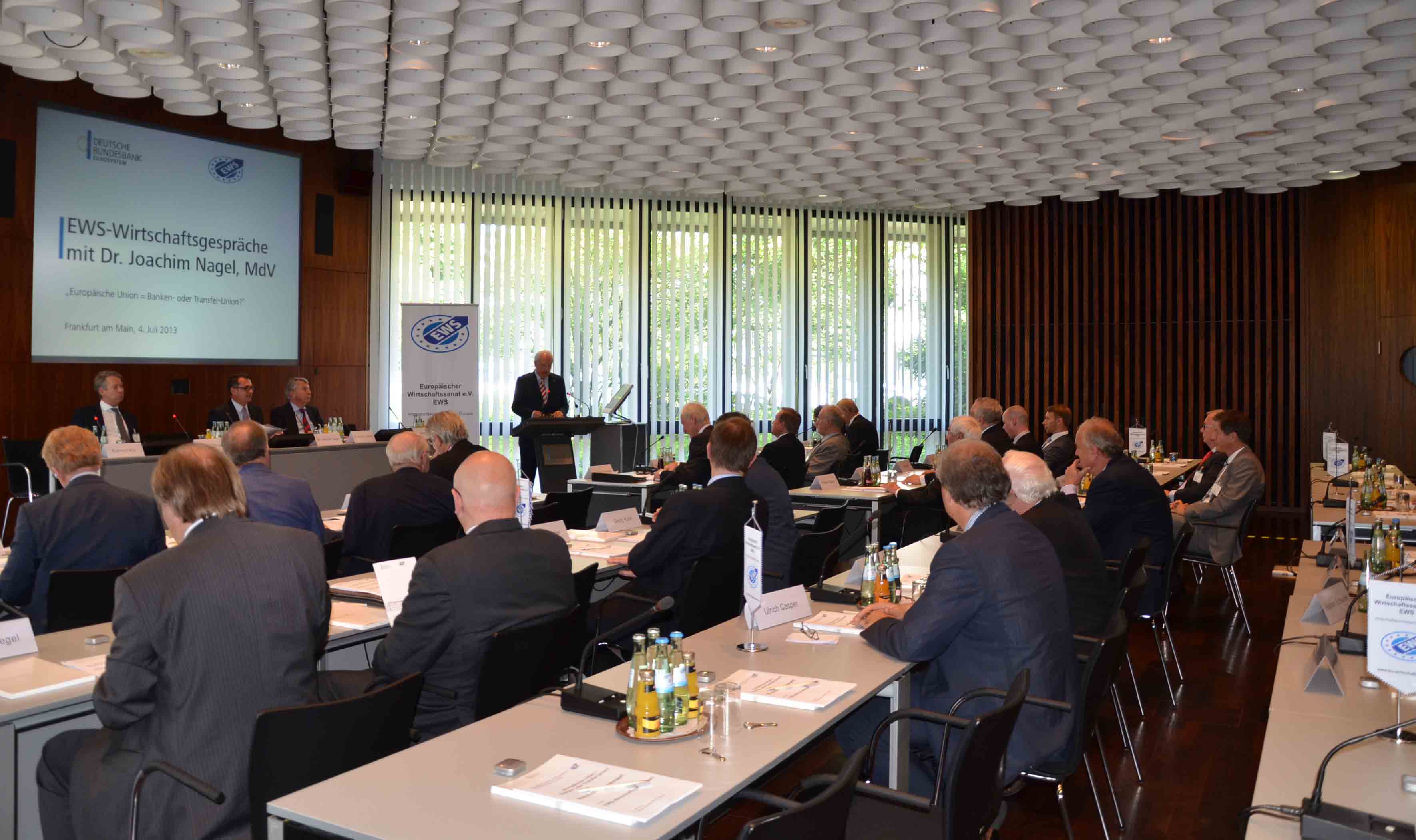
PArtcipants of EES Economy Discourtse
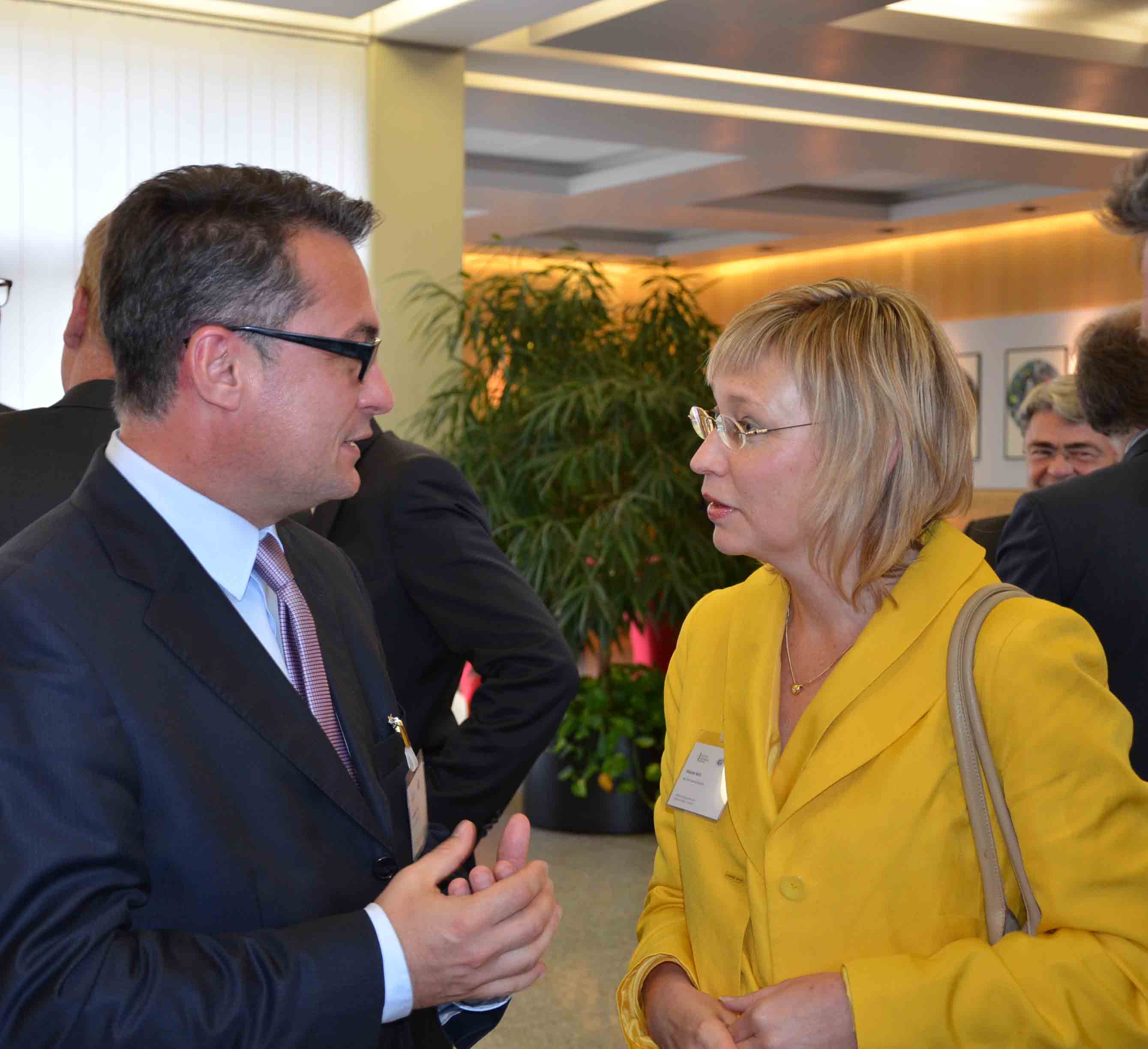
Dr. Nagel and EES Senator Melanie Nehl
certificate of appointment
